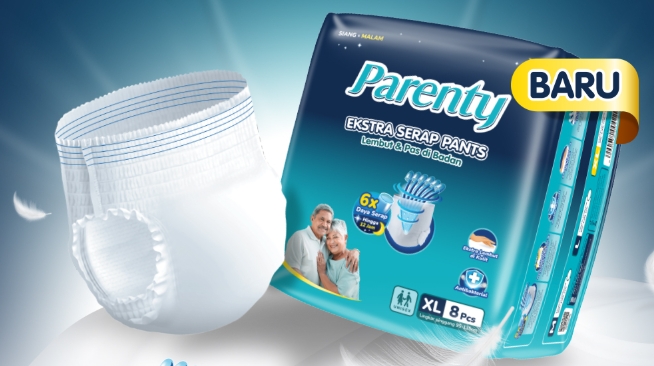Ever found it difficult to hold back urination? It may be a sign that you are experiencing urinary incontinence. This condition is a loss of bladder control that makes it difficult for a person to hold back urination. Incontinence can be experienced by anyone from adults to elderly parents.
What is incontinence?
Urinary incontinence, or more commonly known as "bladder incontinence," is a medical condition where a person loses control over the uncontrolled release of urine from the bladder. This can result in unwanted urine leakage and can affect a person's quality of life. Urinary incontinence can be a symptom of various health problems or can be a condition in itself.
There are several types of urinary incontinence, including:
Stress Incontinence
Occurs when sudden pressure on the bladder, such as coughing, sneezing, laughing, or weight lifting, causes urine leakage.
Urge Incontinence
Also known as "overactive bladder," where a person feels a strong, urgent urge to urinate that is difficult to control.
Mixed Incontinence
Mixed incontinence is a combined condition of stress and urgency incontinence. Symptoms include a sudden urge to urinate, even to the point of bedwetting or shitting one's pants. Compared to men, women generally experience mixed incontinence more often which interferes with daily activities.
Incomplete Flow Incontinence
People with this condition are unable to empty the bladder completely, leading to leakage after urination.
Functional Incontinence
Occurs due to physical or mental limitations that prevent a person from accessing toilet facilities on time.
Transient Incontinence
Is temporary and generally associated with a specific cause such as a urinary tract infection or the use of certain medications.
This condition can be triggered by a variety of factors, such as age, pregnancy, childbirth, obesity and neurological disorders. Treatment and management for urinary incontinence may include lifestyle changes, pelvic muscle exercises, physical therapy, medications, and in more serious cases, surgical procedures. It is important to consult a medical professional if you are experiencing urinary incontinence problems to get an accurate diagnosis and an appropriate treatment plan.
Symptoms of Incontinence
The symptoms of urinary incontinence may vary depending on the type and cause. Here are some common symptoms of urinary incontinence:
Stress Incontinence
Urine leakage during physical activities such as coughing, sneezing, laughing, or lifting weights. Urine leakage when standing up from a sitting position or getting up from sleep.
Urgency Incontinence
A strong, urgent urge to urinate that is difficult to control. Leakage of urine before you reach the toilet despite feeling an urgent urge.
Mixed Incontinence
A combination of symptoms from stress and urgency incontinence.
Incomplete Flow Incontinence
Feeling that the bladder is not completely empty after urinating. Leakage of urine after urination.
Functional Incontinence
Difficulty in reaching the toilet on time due to physical or mental limitations.
Transient Incontinence
Urine leakage that may be temporary and related to causes such as urinary tract infections or the use of certain medications.
It is important to remember that these symptoms can significantly affect a person's quality of life. If you are experiencing symptoms of urinary incontinence, it is important to consult a medical professional, such as a general practitioner or urologist, for a proper diagnosis and treatment recommendations that are appropriate for your condition.









